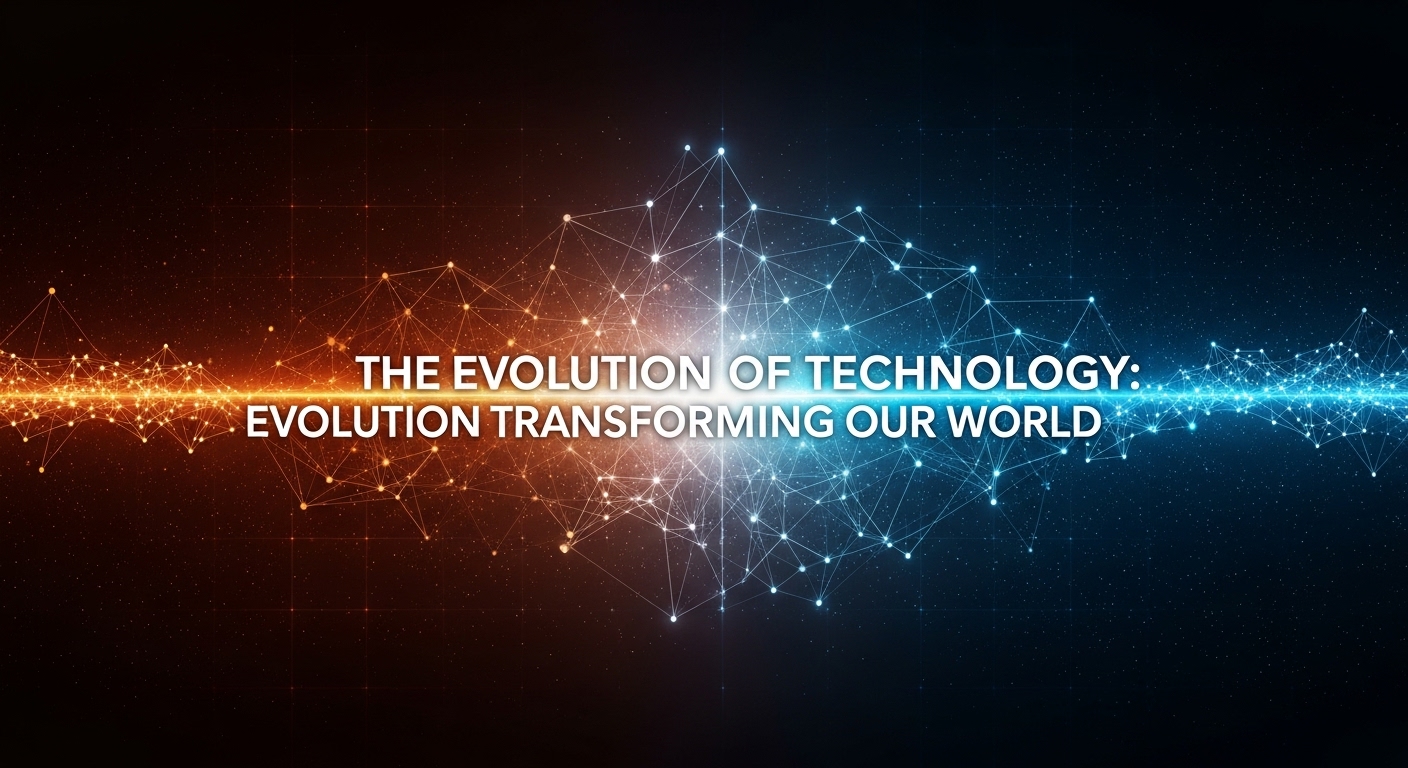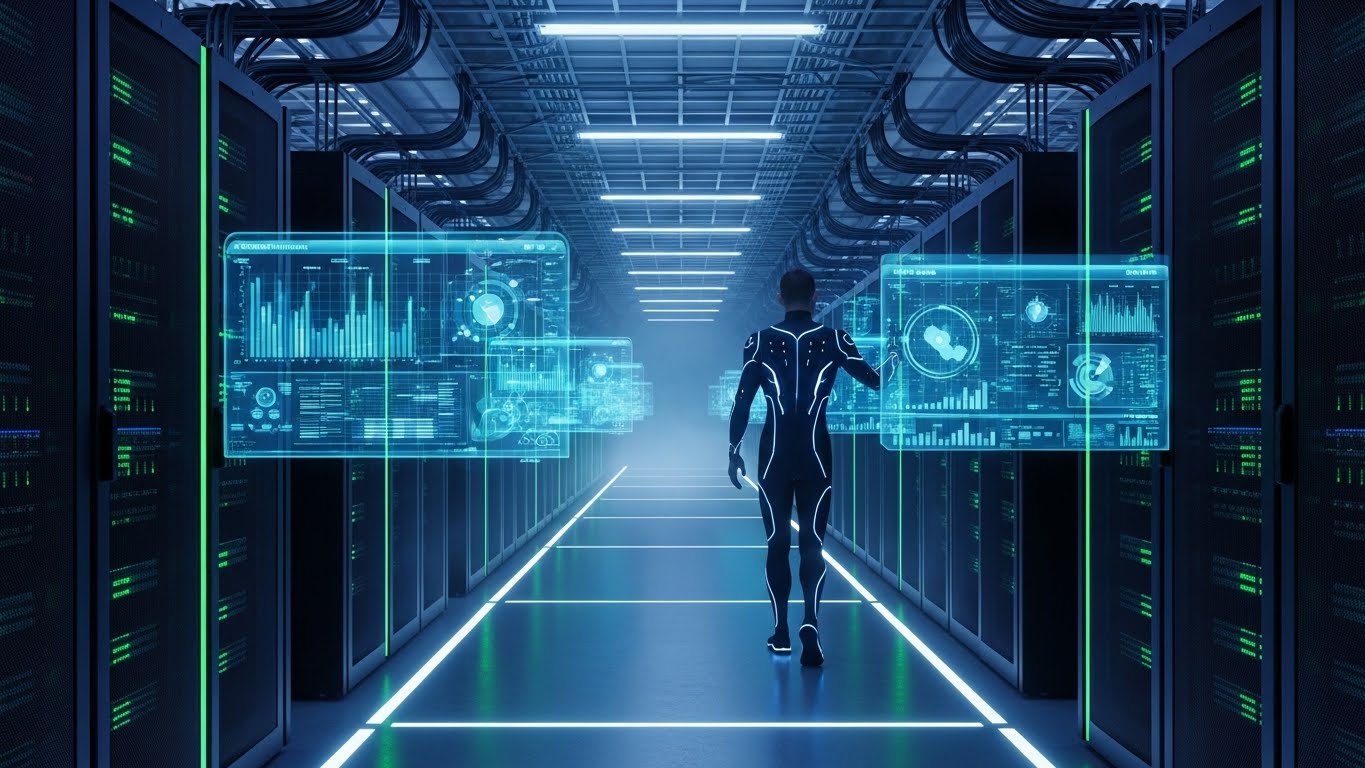Technology has become an inseparable part of human life. From the way we communicate to the way we work, travel, and entertain ourselves, technology continues to shape and redefine every aspect of our existence. In today’s fast-paced digital world, staying abreast of technological advancements is no longer optional—it is essential. This blog explores the profound impact of technology, tracing its evolution, understanding its current applications, and envisioning its future potential.
The Evolution of Technology
Technology is not a new phenomenon; it has been evolving alongside humanity for centuries. Early innovations, such as the wheel, the plow, and the printing press, laid the foundation for modern advancements. These inventions simplified daily life, increased productivity, and expanded human knowledge. The Industrial Revolution marked a significant turning point, introducing mechanization and mass production. Steam engines, textile machines, and telegraphs transformed societies and economies, demonstrating that technology could fundamentally alter human existence.
The 20th century witnessed the rise of digital technology. Computers, telecommunications, and the internet revolutionized how we process and share information. The invention of the microprocessor in the 1970s paved the way for personal computers, while the internet connected the world in unprecedented ways. Today, technology evolves at an exponential rate, influencing every sector from healthcare to entertainment, education to transportation.
Communication in the Digital Age
One of the most noticeable transformations brought by technology is in communication. The advent of smartphones, social media, and instant messaging apps has made communication instantaneous and borderless. People can now share information, ideas, and experiences in real-time, regardless of geographical location. Video conferencing tools have made remote work and virtual collaboration commonplace, bridging the gap between distant teams and individuals.
Artificial intelligence (AI) and natural language processing have further enhanced communication. Virtual assistants, chatbots, and translation tools now facilitate seamless interaction, breaking down language barriers and improving accessibility. The rise of social media platforms has also redefined human interaction, enabling communities to form around shared interests and causes. While these advancements have increased connectivity, they also raise important questions about privacy, mental health, and the quality of interpersonal relationships.
Technology in Healthcare
Healthcare has been profoundly transformed by technological innovation. Advanced diagnostic tools, wearable devices, and telemedicine platforms have improved patient care and accessibility. Artificial intelligence assists doctors in analyzing medical images, predicting disease outbreaks, and personalizing treatment plans. Wearable devices track vital signs and monitor chronic conditions, allowing individuals to take a proactive role in their health.
Medical research has also benefited immensely from technology. High-performance computing and data analytics enable scientists to process vast amounts of genetic and clinical data, accelerating the development of new treatments and vaccines. Robotic surgery and minimally invasive procedures reduce recovery times and improve surgical precision. The ongoing integration of technology in healthcare promises not only better outcomes but also a more equitable distribution of medical services worldwide.
The Role of Technology in Education
Education is another sector experiencing rapid technological transformation. E-learning platforms, digital classrooms, and online resources have democratized access to knowledge. Students can now access courses from top universities, learn new skills at their own pace, and participate in interactive virtual learning experiences. Technology enables personalized learning, where algorithms adapt educational content to individual learning styles and abilities.
Virtual and augmented reality (VR and AR) are redefining experiential learning. Medical students can practice surgeries in simulated environments, history students can explore ancient civilizations in 3D, and engineering students can visualize complex structures before constructing them. These immersive experiences enhance understanding, retention, and engagement. Technology has also expanded opportunities for lifelong learning, allowing professionals to continuously update their skills in an ever-changing job market.
Technology and the Business World
In the business world, technology has revolutionized how companies operate, market their products, and interact with customers. Digital transformation has become a strategic imperative for businesses seeking to remain competitive. Automation, artificial intelligence, and data analytics streamline operations, optimize supply chains, and enhance decision-making processes.
E-commerce has reshaped retail, enabling consumers to shop online from anywhere at any time. Digital marketing leverages data to create targeted campaigns, improve customer engagement, and measure return on investment with precision. Cloud computing allows businesses to scale operations, collaborate remotely, and reduce infrastructure costs. Emerging technologies such as blockchain provide secure, transparent solutions for transactions, contracts, and supply chain management. The integration of technology in business is not just about efficiency—it is about creating new opportunities, reshaping business models, and delivering superior value to customers.
The Impact of Technology on Entertainment
Entertainment has undergone a profound transformation with technological advancements. Streaming services have replaced traditional television and movie theaters, giving audiences instant access to vast libraries of content. Video games have evolved into immersive experiences, combining stunning graphics, complex narratives, and online multiplayer environments.
Artificial intelligence and machine learning are increasingly used in content creation. Algorithms recommend personalized playlists, movies, and shows, ensuring that users discover content tailored to their preferences. Virtual reality and augmented reality have created new forms of entertainment, from interactive storytelling to immersive gaming experiences. Technology not only enhances how we consume entertainment but also opens up new avenues for creativity, collaboration, and audience engagement.
Transportation and Smart Mobility
Transportation is another area where technology has made significant strides. Electric vehicles, autonomous cars, and ride-sharing platforms are transforming how people move. Electric vehicles reduce carbon emissions, while autonomous technology promises safer roads and more efficient traffic management. Smart transportation systems use data analytics and IoT devices to optimize routes, reduce congestion, and improve public transit.
Hyperloop and drone technology represent the next frontier of mobility, offering faster and more sustainable transportation solutions. Technology has also enhanced logistics and supply chain management, enabling real-time tracking, predictive maintenance, and automated delivery systems. As urban populations grow, smart mobility solutions will play a crucial role in creating sustainable, efficient, and accessible transportation networks.
Artificial Intelligence and Machine Learning
Artificial intelligence (AI) and machine learning (ML) are at the forefront of technological innovation. AI systems can analyze vast amounts of data, recognize patterns, and make predictions with unprecedented accuracy. From chatbots and virtual assistants to autonomous vehicles and predictive analytics, AI is reshaping industries and redefining human potential.
Machine learning, a subset of AI, enables systems to improve over time based on experience. In healthcare, ML algorithms can predict disease progression and recommend personalized treatments. In finance, AI models detect fraudulent transactions and optimize investment strategies. AI-driven automation enhances productivity across sectors, reducing repetitive tasks and allowing humans to focus on creative and strategic endeavors.
However, the rise of AI also raises ethical and societal questions. Issues such as bias in algorithms, job displacement, and privacy concerns require careful consideration. Responsible AI development and regulation are essential to ensure that these technologies benefit society as a whole.
Cybersecurity in the Digital Era
As technology becomes more integrated into daily life, cybersecurity has emerged as a critical concern. Cyber threats, including hacking, phishing, and ransomware attacks, pose significant risks to individuals, businesses, and governments. Protecting sensitive data, digital assets, and online infrastructure is essential in a connected world.
Advanced security measures, such as encryption, multi-factor authentication, and artificial intelligence-driven threat detection, help safeguard digital systems. Organizations must adopt a proactive approach to cybersecurity, continuously monitoring for vulnerabilities and responding to emerging threats. Cybersecurity is not just a technical challenge; it is a matter of trust, accountability, and resilience in an increasingly digital society.
Emerging Technologies and the Future
The pace of technological innovation shows no signs of slowing. Emerging technologies such as quantum computing, 5G networks, and biotechnology have the potential to revolutionize industries and transform human life. Quantum computing promises unprecedented computational power, enabling solutions to complex problems that are currently unsolvable. 5G networks offer faster, more reliable connectivity, supporting the growth of smart cities, IoT devices, and immersive digital experiences. Biotechnology advances, including gene editing and synthetic biology, have the potential to cure diseases, enhance agriculture, and address environmental challenges.
The convergence of these technologies will create new opportunities and challenges. Ethical considerations, regulatory frameworks, and societal readiness will play a critical role in shaping the impact of these innovations. The future of technology is not just about what is possible—it is about how humanity chooses to harness it responsibly.
The Human-Technology Relationship
While technology offers immense benefits, it also prompts reflection on the human-technology relationship. Dependence on digital tools can lead to challenges such as information overload, reduced attention spans, and social isolation. Balancing the convenience of technology with mindful usage is essential for mental and emotional well-being.
At the same time, technology empowers humans to achieve feats once thought impossible. It enhances creativity, expands knowledge, and fosters collaboration across borders. The challenge lies in ensuring that technology serves humanity, rather than the other way around. By cultivating digital literacy, ethical awareness, and critical thinking, individuals can navigate the digital landscape with confidence and purpose.
Conclusion
Technology is a powerful force that has transformed, and will continue to transform, every aspect of human life. From communication and healthcare to education, business, entertainment, and transportation, its impact is profound and far-reaching. Emerging technologies such as AI, quantum computing, and biotechnology promise to redefine the boundaries of possibility.
However, technology is not without its challenges. Ethical considerations, cybersecurity threats, and the human-technology relationship must be thoughtfully addressed. By embracing innovation responsibly and with foresight, humanity can leverage technology to create a more connected, equitable, and sustainable world.
The journey of technology is ongoing, and the future is limited only by imagination, ingenuity, and ethical stewardship. As we stand at the intersection of rapid innovation and societal transformation, understanding, adapting to, and shaping technology is not just desirable—it is essential for the generations to come.



